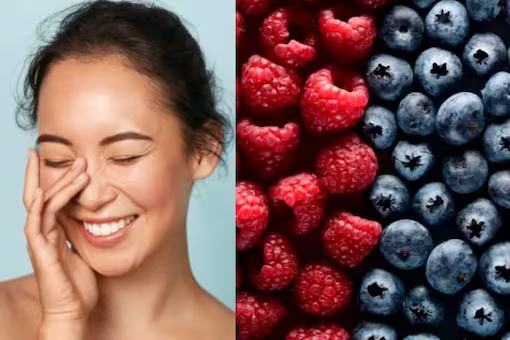Your skin’s look and youthfulness are greatly influenced by a healthy diet. The protein known as collagen provides your skin its structure, suppleness, and stretch. Our skin produces less collagen each year as we get older, which contributes to the tendency for wrinkles and thinner skin as we age. Collagen supplements like gummies, pills, and powders have become very popular, but they are not necessarily the greatest way to increase skin’s collagen production. It’s advisable to adopt a natural routine in addition to altering your eating habits. So, here is sharing with you the top 7 foods that can increase the collagen in your skin.
7 Vital Foods to Increase Collagen Production in Your Skin:
- Fish and shellfish:
In contrast to other meats, fish and shellfish have collagen-based bones. It has marine collagen, which is a rich source of collagen peptides and most readily absorbed. The best source of vitamin C for healthy hair, skin, and eyesight is fish. Numerous fish and shellfish species contain high levels of collagen. Salmon is a fantastic option, especially if you consume it whole as the scales are a fantastic source of marine collagen. Benefits of marine collagen include better skin and tissue health. You might want to think about consuming more oysters as well. - Egg whites:
Proline, one of the amino acids required for collagen formation, is abundant in egg whites. Egg whites can improve skin suppleness and protect against skin problems including wrinkles and fine lines when used topically for skin rejuvenation. An egg white mask can aid in pore reduction, skin lifting, and the reduction of greasy sheen thanks to this natural resource’s age-defying uses. - Tangerine fruits:
Significant impact of vitamin C on pro-collagen synthesis. Consequently, consuming enough vitamin C is essential. This vitamin is abundant in citrus fruits like oranges, grapefruit, lemons, and limes. For breakfast, try a grilled grapefruit or toss some orange segments into your salad. - Berries:
Berries are rich in antioxidants, which protect the skin from harm, even though citrus frequently receives the spotlight for its vitamin C concentration. We also need to consume vitamin C because our bodies cannot produce it on their own. A cup of strawberries provides almost all of your recommended daily intake of vitamin C, while a cup of raspberries or blackberries provides about 35%. - Leafy greens:
A healthy diet must include leafy greens. The antioxidant qualities of spinach and other green salads are well known to boost the precursor to collagen in the skin. An important component of a balanced diet is leafy greens. It turns out that they might also provide aesthetic advantages. The chlorophyll that gives salad greens like spinach, kale, Swiss chard and others their colour is recognised for its antioxidant benefits. Consuming chlorophyll increases the skin’s precursor to collagen, according to some research. - Beans:
Beans are a high-protein food that frequently have the amino acids needed to produce collagen.Additionally, they contain genistein, an isoflavone that promotes collagen. Numerous nutrients and minerals, including zinc, copper, and vitamin C, which are beneficial for skin health, may be found in legumes and beans. - Tomatoes:
Tomatoes are another undiscovered source of vitamin C; they include a significant amount of lycopene, a potent antioxidant for skin support. Additionally, tomatoes, especially sun-dried tomatoes, are rich in vitamin C, which is necessary for the synthesis of collagen. They also include lycopene, an antioxidant known to shield skin from UV rays and collagen deterioration. To add a little tang to your dishes, toss them in a salad or put them on top of your pasta. Grape tomatoes can also be eaten on their own as a nutritious grab-and-go snack.


